Year 4: Wellbeing
Use this unit hub to inform your medium-term plan and navigate to related resources.
The Curriculum and Assessment Review final report has been released. We’re reviewing the recommendations and planning for future updates. Learn more
- Subjects >
- Wellbeing >
- Key stage 2 >
- Year 4 >
-
Year 4: Wellbeing
Unit outcomes
Pupils who are secure will be able to:
- Understand the skills needed to work as a team.
- Identify the benefits of communicating with others.
- Explain strategies they can use to communicate with others safely.
- Discuss how a person contributes to their school community and explain how they will show their appreciation.
- Understand how their actions can affect people.
- Recognise positive and negative thoughts and apply strategies to cope with negative thinking.
Suggested prior learning
Year 3: Wellbeing
Get startedLessons
Discover: Resilience
- To discover how to overcome mental or physical hurdles.
Take notice: My thoughts
- To take notice of my thoughts.
Connect: Pen pals
- To connect with others by writing to them.
Give: Giving to my community
- To give through an act of kindness.
Move: Making a beat
- To move to a beat.
Key skills
Related content
Unit resources
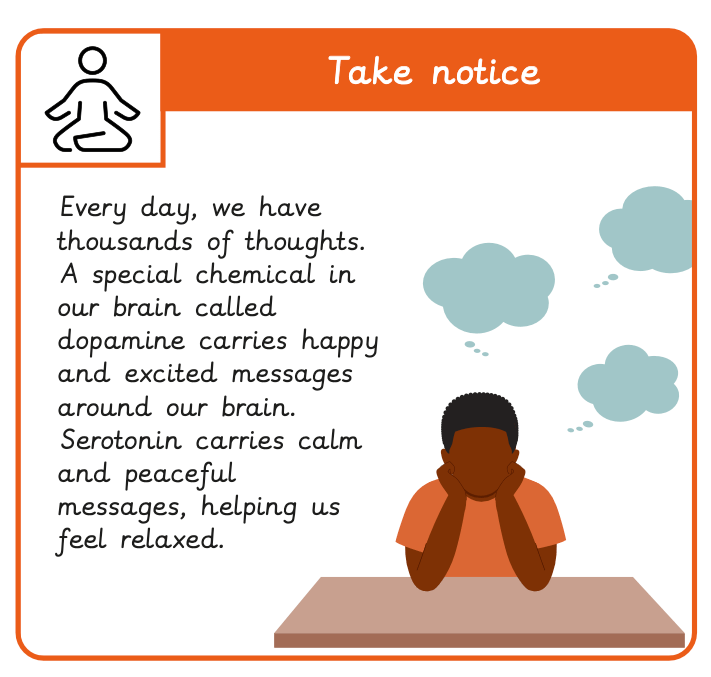
Knowledge Organiser – Wellbeing Year 4
Aimed at pupils, a visual summary of the unit's key knowledge, techniques and vocabulary.
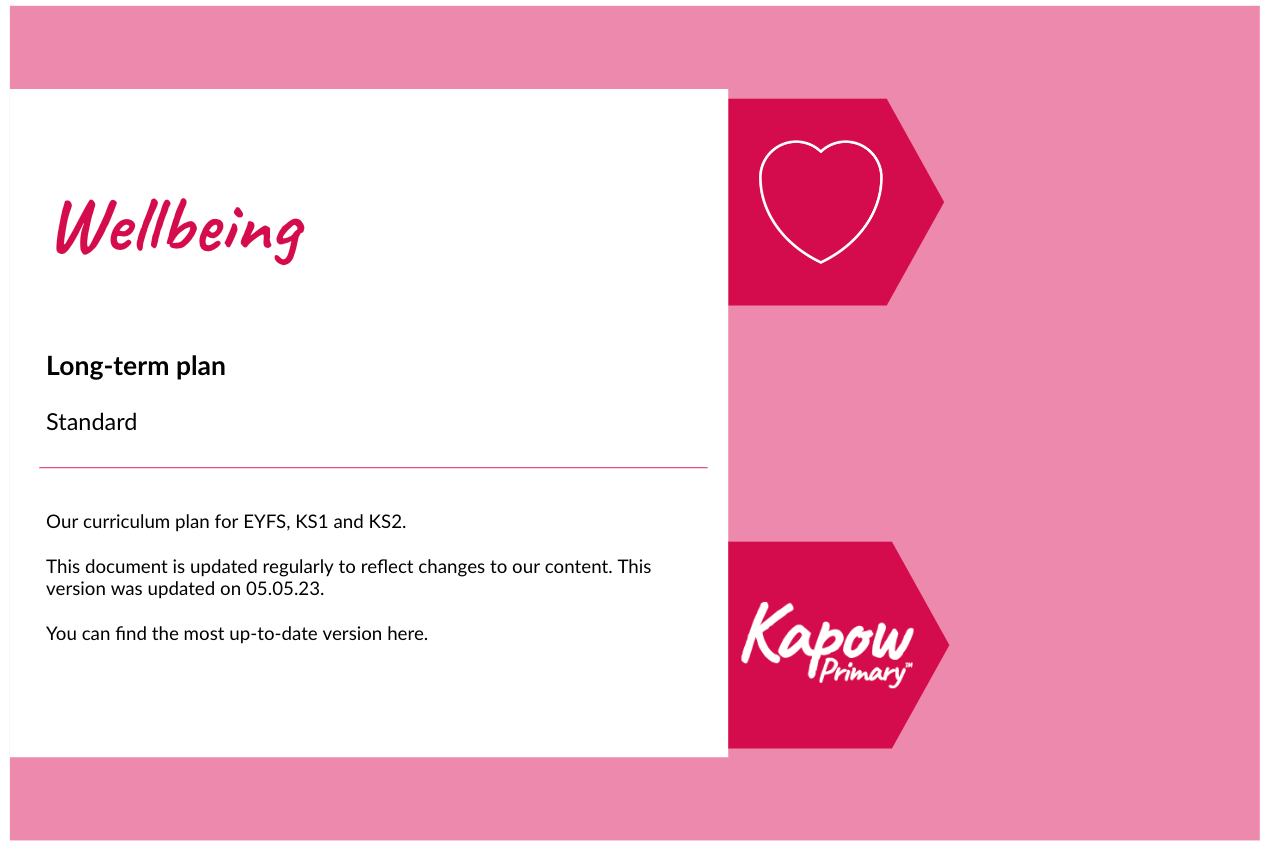
Wellbeing: Long-term plan
An overview of our wellbeing curriculum.
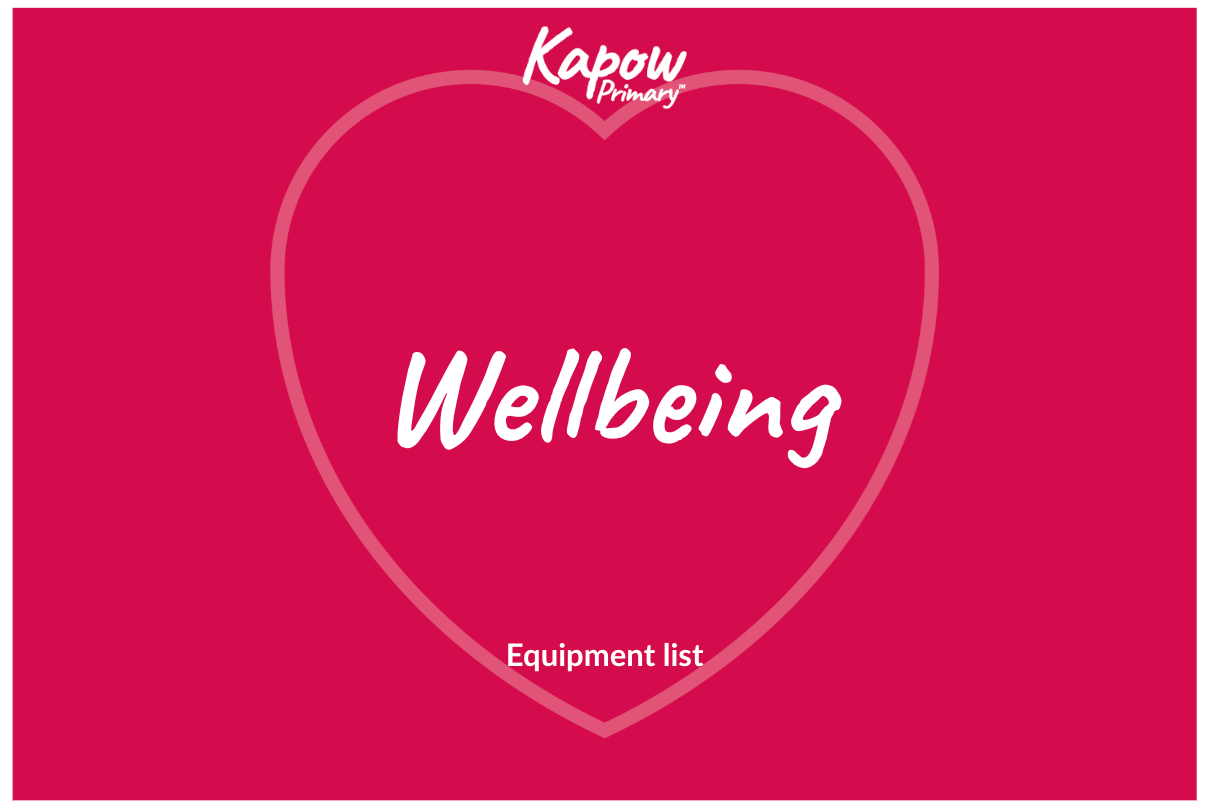
Wellbeing: Equipment list
A downloadable list detailing the required resources for Kapow Primary's free Wellbeing scheme of work.
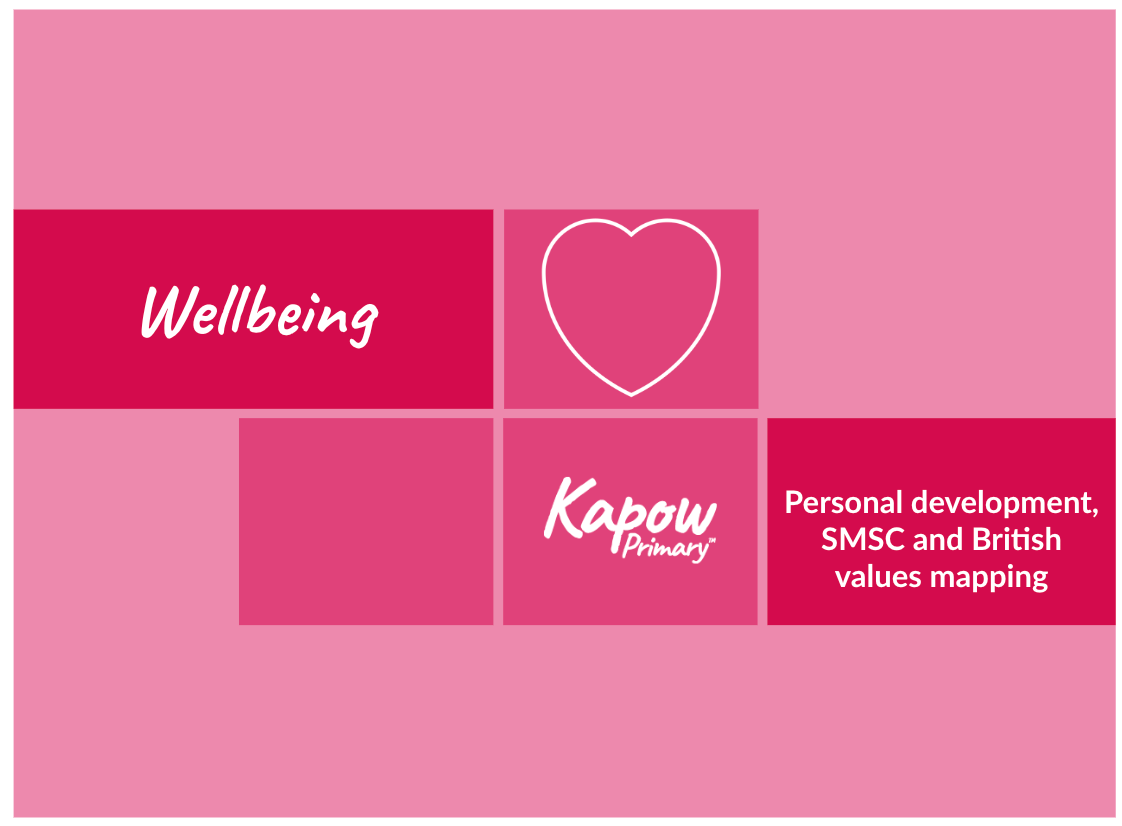
Wellbeing: Personal development, SMSC and British values mapping
A user-friendly document mapping Ofsted's SMSC descriptors, British values and Personal development statements against Kapow Primary's Wellbeing curriculum.
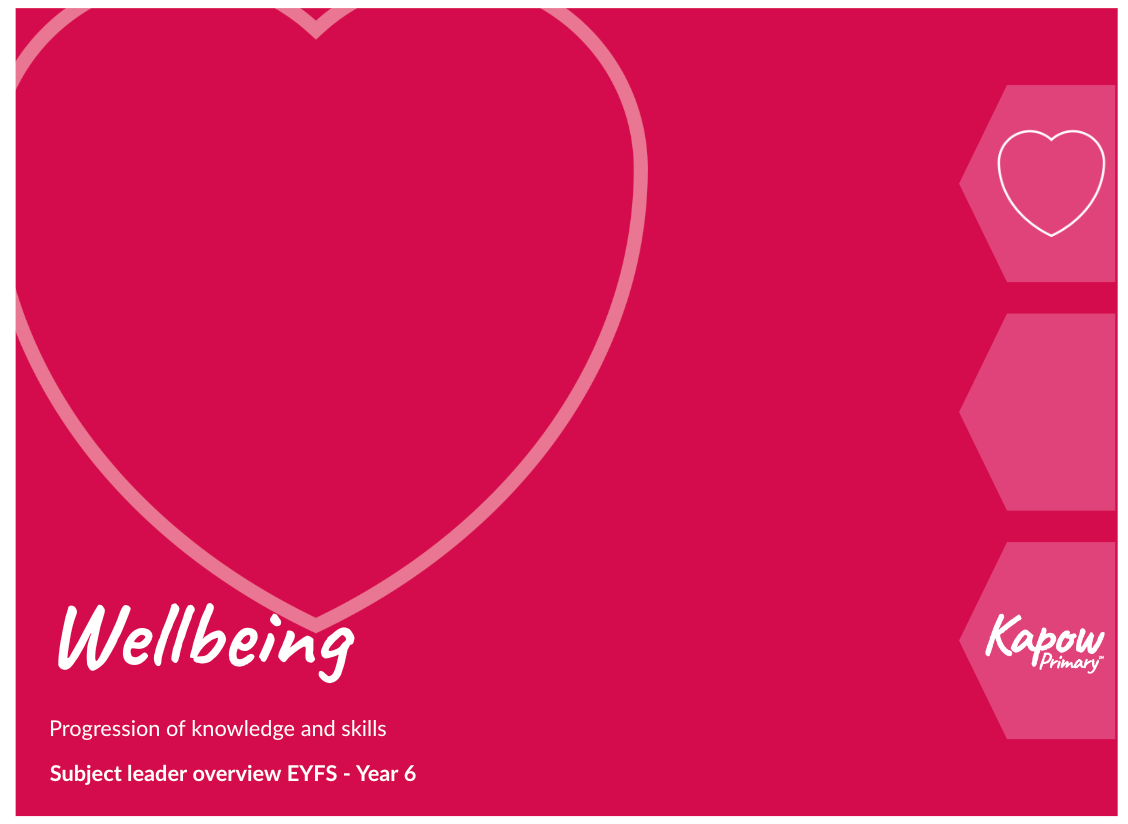
Wellbeing: Progression of knowledge and skills
Showing how pupils' knowledge and skills develop when following the Kapow Primary Wellbeing curriculum.
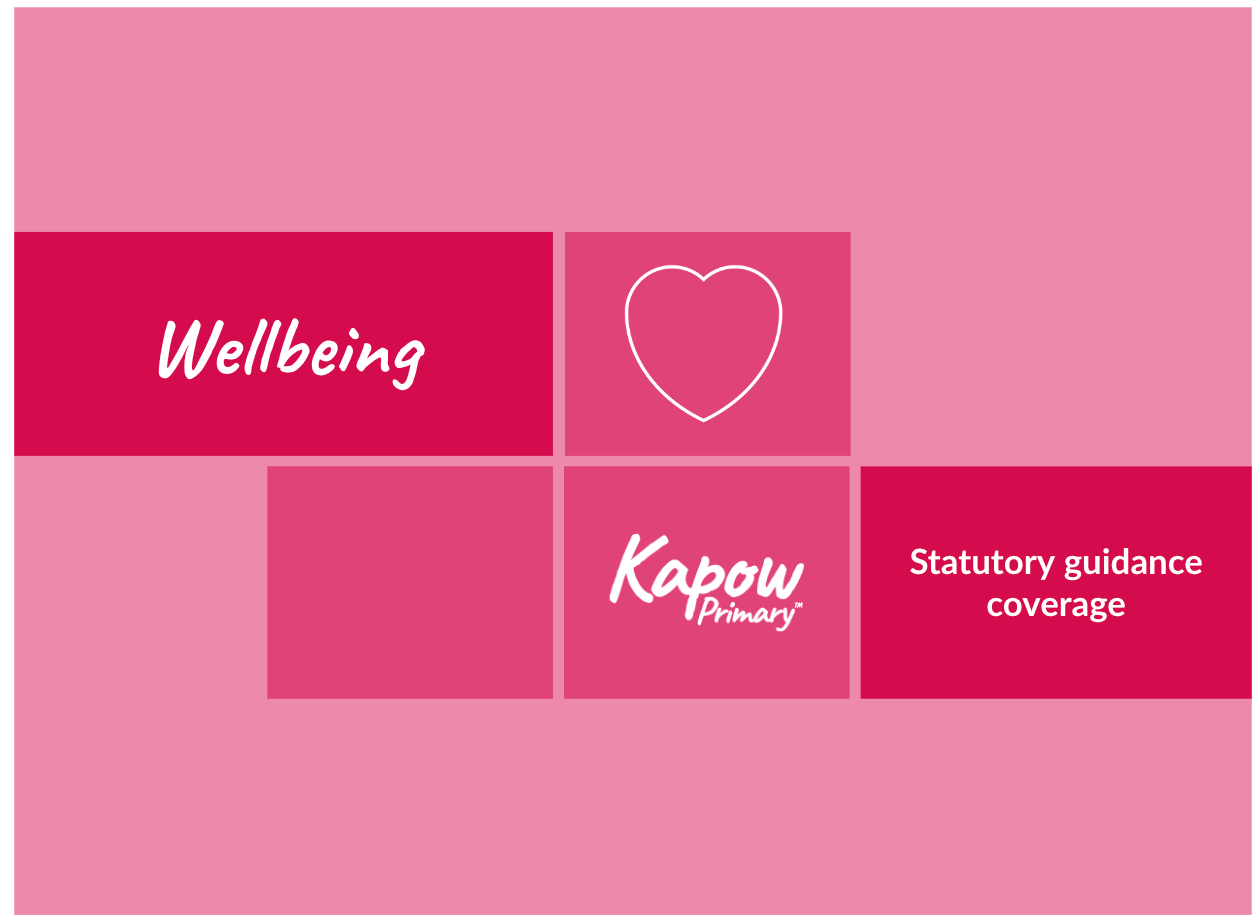
Wellbeing: Statutory guidance coverage
This document shows which Kapow Primary Wellbeing lessons give coverage of the statutory RSE and Health Education published by the…
Cross-curricular opportunities
Computing
Pupils should be taught to:
- Use technology safely, respectfully and responsibly; recognise acceptable/unacceptable behaviour; identify a range of ways to report concerns about content and contact.
See National curriculum - Computing - Key stages 1 and 2.
English
Writing
Pupils should be taught to:
- Draft and write non-narrative material, using simple organisational devices.
See National curriculum - English - Key stages 1 and 2.
British values
- Mutual respect
- Individual liberty
See Promoting fundamental British values as part of SMSC in schools (non-statutory advice).

